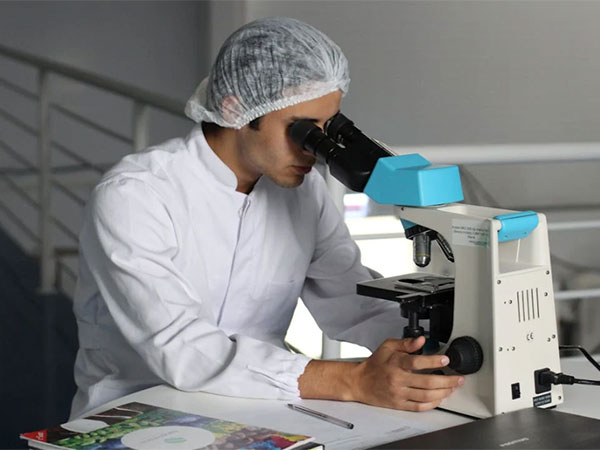California [US], January 18 (ANI): A team of researchers led by the University of California, San Diego, and Stanford University has discovered a noninvasive approach for monitoring electrical activity inside cardiac muscle cells from the outside, without physically penetrating the cells.
The method is based on capturing electrical signals from outside the cells and using AI to reconstruct the signals within the cells with high precision.
The electrical signals inside heart muscle cells provide insights into how the heart functions, how its cells communicate and how they respond to drugs. However capturing these signals typically involves puncturing the cells with tiny electrodes, which can damage them and make large-scale testing complicated.
Now, researchers have found a way to peer inside the cells without actually going in.
The key lies in extracting the relationship between the signals inside the cells (intracellular signals) and those recorded on their surface (extracellular signals). “We discovered that extracellular signals hold the information we need to unlock the intracellular features that we’re interested in,” said Zeinab Jahed, a professor in the Aiiso Yufeng Li Family Department of Chemical and NanoEngineering at UC San Diego, who is one of the study’s senior authors. Keivan Rahmani, a nanoengineering Ph.D. student in Jahed’s lab, is the first author of the study.
While extracellular signals can be captured with less invasive methods, they do not provide much detail about the cell’s electrical activity. “It is like listening to a conversation through a wall-you can detect that communication is happening, but you miss the specific details,” explained Jahed. “In contrast, intracellular signals offer the details, making you feel like you are sitting inside the room hearing every word clearly, but they can only be captured by invasive and more technically challenging methods.” Using AI, Jahed, Rahmani and colleagues developed a method to correlate extracellular signals with specific intracellular signals.
To develop the new method, the team first engineered an array of nanoscale, needle-shaped electrodes. These electrodes, each up to 200 times smaller than a single heart muscle cell, are made of silica-coated with platinum. Heart muscle cells, derived from stem cells, were grown and then placed on the electrode array.
The researchers collected a massive dataset–thousands of pairs of electrical signals–each pair linking an extracellular recording with its corresponding intracellular signal. The data included how the cells responded when exposed to various drugs. This offered a rich library of data on how heart muscle cells behave under different conditions.
When analyzing these pairs, researchers identified patterns between the extracellular and intracellular signals. They then trained a deep learning model to predict what the intracellular signals looked like based solely on the extracellular recordings. In tests, their model created accurate and complete reconstructions of the intracellular signals.
This work has important applications in drug screening, said Jahed. Every new pharmaceutical must undergo rigorous testing to ensure it does not adversely affect the heart–a process known as cardiotoxicity testing. Part of this process involves collecting detailed intracellular data from heart cells. Subtle changes in these electrical signals can provide clues about a drug’s effects on the heart, which can help drug developers assess the safety of new medications. “Currently, this is a lengthy and costly process. It typically starts with tests on animal models, which don’t always predict human outcomes,” said Jahed.
By using the new AI-driven approach in this study, researchers can screen drugs directly on human heart cells. This can offer a more accurate picture of how a drug will behave in the human body and potentially bypass the need for early-stage animal testing.
“This could dramatically reduce the time and cost of drug development,” said Jahed. “And because the cells used in these tests are derived from human stem cells, it also opens the door to personalized medicine. Drugs could be screened on patient-specific cells to predict how an individual might respond to these treatments.”
While the current study focused on heart muscle cells, the researchers are already working to expand their method to other types of cells, including neurons. Their goal is to apply this technology to better understand a wide array of cellular activities in different tissues. (ANI)
Disclaimer: This story is auto-generated from a syndicated feed of ANI; only the image & headline may have been reworked by News Services Division of World News Network Inc Ltd and Palghar News and Pune News and World News
HINDI, MARATHI, GUJARATI, TAMIL, TELUGU, BENGALI, KANNADA, ORIYA, PUNJABI, URDU, MALAYALAM
For more details and packages















